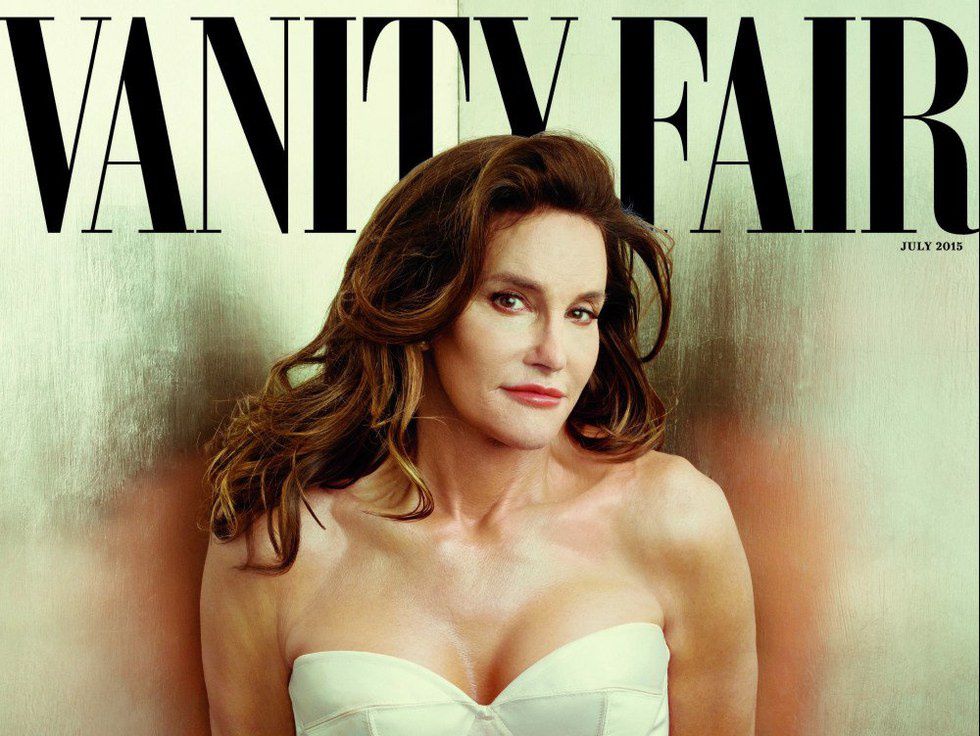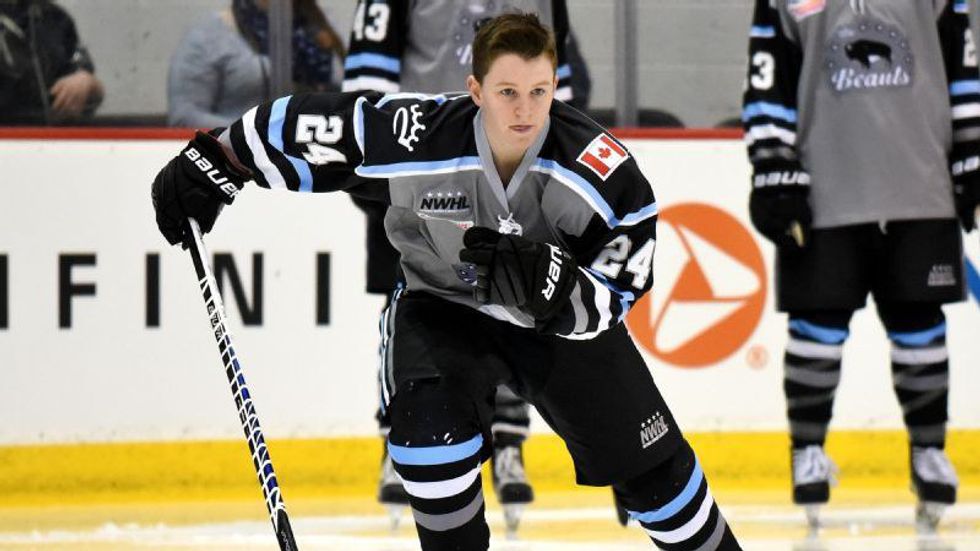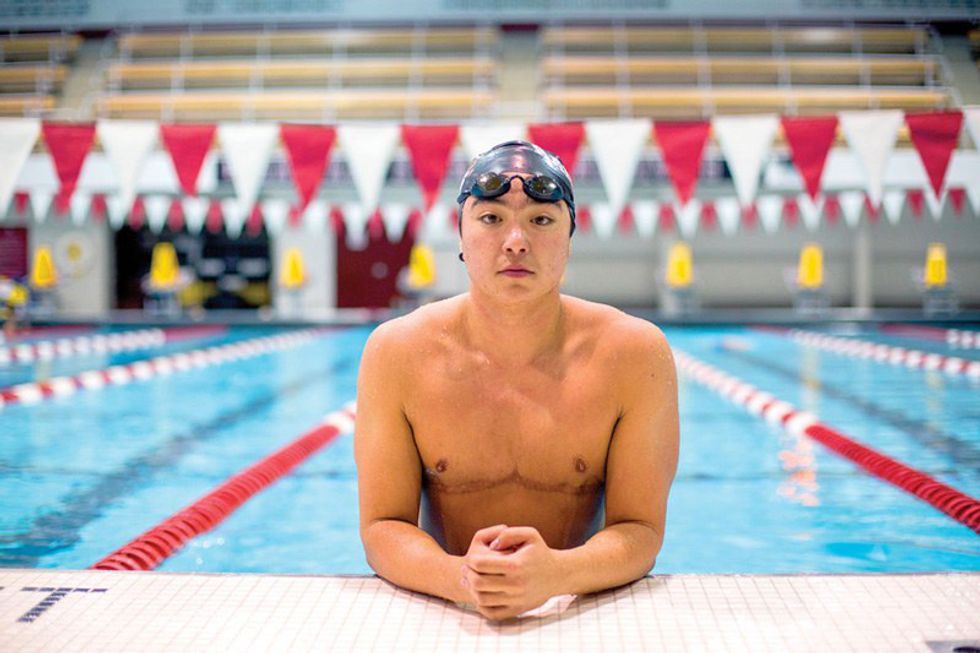This past September, soccer legend Abby Wambach came to speak at Mount Holyoke. I was privileged enough to be able to open the door for dialogue around trans athletes by asking her opinion on trans issues in athletics. I apparently sparked some deep thinking in her, as she later mentioned me and our conversation on her podcast, Fearless Conversations. The podcast episode was all about trans issues in athletics. I commend Abby for her efforts to start respectful dialogue around the issue, and appreciate her enthusiasm to learn. However, I noticed while listening to her podcast that she didn’t seem to know much about trans athletes.
So here are 6 things you should know about trans athletes:
1.Trans athletes cannot simply choose the team they would like to compete with.
I have come across a number of people who are surprised to learn that as a trans man I am no longer eligible to compete with Mount Holyoke College’s women’s field hockey team. I suppose this is due to Mount Holyoke’s largely progressive nature; being ineligible to compete on one of the school’s varsity teams may seem like blatant discrimination (though I wouldn’t say it is). Personally, I am fascinated by these people’s assumption that I, as a man, would want to continue competing on a women’s team. I most definitely miss playing competitively. That being said, I imagine competing on a women’s team would add to my dysphoria. Regardless, it is not up to me or the Athletics Department or even the college administration; this rule comes from the National Collegiate Athletics Association (NCAA).
2.Rules regarding trans athletes depend on the governing body.
Not all sports leagues have rules regarding trans athletes, and the rules that exist vary by sport and governing body. I have been working in collaboration with Mount Holyoke Athletics to add clarity regarding the various governing bodies’ rules for our varsity and club sports teams. Many of the rules use specific technical language, and some governing bodies have no rules for trans athletes at all.
3.The NCAA and IOC allow trans athletes within the binary to compete with the team they identify with, provided they are within certain hormone levels.
The International Olympic Committee (IOC) set the precedent for rules regarding trans athletes. These rules have influenced many sports’ governing bodies, including the NCAA. Typically, the rules state that someone taking testosterone can compete on a men’s team at any point, and can even join a men’s team before beginning testosterone. However, once that person has just a single dose of testosterone, they can only compete on men’s teams from there on out. In contrast, people taking estrogen and/or testosterone blockers must complete a full calendar year of hormone therapy before being allowed to compete on a women’s team. Mount Holyoke College's field hockey team adheres to the NCAA Transgender Policies.
4. Trans athletes do not have a medical advantage.
There is much controversy over the medical and physical aspects of allowing trans athletes to compete with the gender teams with which they most strongly identify. Steven Petrow of the Washington Post did a piece exploring these aspects and why the IOC trans policies do not give trans athletes an advantage. The argument was based off Joanna Harper's study of trans women in athletics, which was published in the Journal of Sporting Cultures and Identities in 2015. Steroids are performance enhancing hormones that help people build muscle. In contrast, hormone therapy is merely helping a person’s hormone levels get to where they should be for that person to feel more comfortable in their body. Similarly, taking estrogen and testosterone blockers take away the physical characteristics that many see as athletic advantages. People who take hormones have regular blood tests to ensure their estrogen and testosterone levels are within a healthy range for that person’s gender.
5.Transgender athletes aren’t their own category; they are athletes that happen to be trans.
The word “trans” is an adjective. It is not a noun that can stand alone. In contrast, “athlete” is a noun that can stand alone. “Trans” simply describes that athlete. There is no competition category for trans athletes, because they are just athletes that happen to be trans.
6.Language and ideas used for legality within athletics is limited.
Like all things legal, the language used regarding trans rules could use much improvement. You may have noticed the lack of terms such as “female-to-male” and “male-to-female” or “assigned female at birth” and “assigned male at birth” in this article. These terms are typically used in the language about trans athletes (and trans people in general). I chose not to use these terms because they perpetuate the idea that it is okay to tell or assign someone a gender, and that gender identity can be reduced to a body. This is just one example of the ways in which legal vernacular around trans athletes is quickly becoming outdated.
And for those who don't know, we do exist! Trans athletes are all around you, whether you realize or not. We may be breaking down the boundaries of the cis-stem (the cisgender system) but in the end all we want is to push ourselves and compete just like any other athlete. Here are just a few trans athletes to know about (in no particular order)*:
Caitlyn Jenner
You've probably heard of her, or heard of her as Bruce Jenner. Arguably, the most well-known trans athlete, Jenner competed Olympically and internationally in the men's decathlon. Years after her retirement as a competitive athlete, Jenner came out as a transgender woman in 2015.
Chris Mosier
The first openly transgender athlete on Team USA, Chris Mosier has been a key figure in dialogue surrounding IOC policies on trans athletes. A triathlete, he became the first trans athlete to be featured by ESPN in their magazine's "Body Issue".
Harrison Browne
I am honored to have been mentioned in the same podcast in which Abby Wambach interviewed Harrison Browne. Browne is the first openly transgender athlete in American professional sports. An ice hockey player, Browne currently competes on the Buffalo Beauts of the National Women's Hockey League (NWHL). He has chosen to wait until retiring from the NWHL before beginning his medical/hormonal transition. At the moment, the NWHL lacks policies regarding trans athletes, but the league's commissioner Dani Rylan has begun work on an inclusive trans policy as a result of Browne's coming out.
Schuyler Bailar
A role-model and friend of mine, Schuyler (pronounced SKY-ler) is the first openly transgender man to compete in Division I NCAA athletics. Though recruited for Harvard University's women's swim team, he competes for the men's team. Schuyler has been featured on 60 Minutes and The Ellen Show, amongst his many other public appearances. His rise to fame started on Instagram, where he has publicly documented his transition.
I met Schuyler through mutual friends. I reached out to him in the spring of 2015, a time when I was struggling to understand my gender. Despite having met several trans men throughout high school and my first semester in college, Schuyler was the first person I knew both before and after coming out. By publicly sharing his story, and due in large part to the subsequent outpouring of support he received, Schuyler showed me that an Asian-American kid from DC could be true to himself and could make it in the world. Schuyler talked me through my whirlwind of thoughts and was a huge support as I began my transition. He has helped me more than he will ever know, and for that I am infinitely thankful.
* I recognize that this list of athletes lacks any trans women who currently compete or have competed with other women. That is due in part to my lack of knowledge of such athletes. In addition, in my research for this piece, though I found names of some athletes such as Chloe Anderson and Jaiyah Saelua, I had trouble finding information that seemed reliable. It begs the question, why aren't trans women in athletics receiving the same visibility as trans men? Is this yet another example of prioritizing masculinity and upholding the patriarchy, even within LGBTQA+ culture?






















